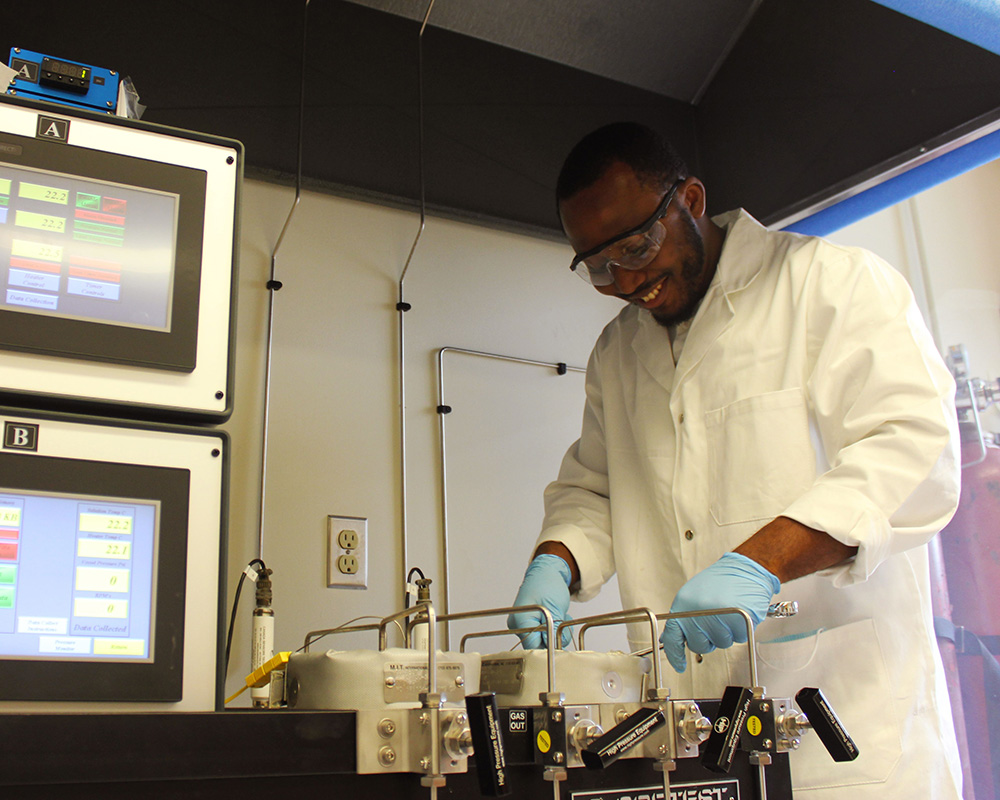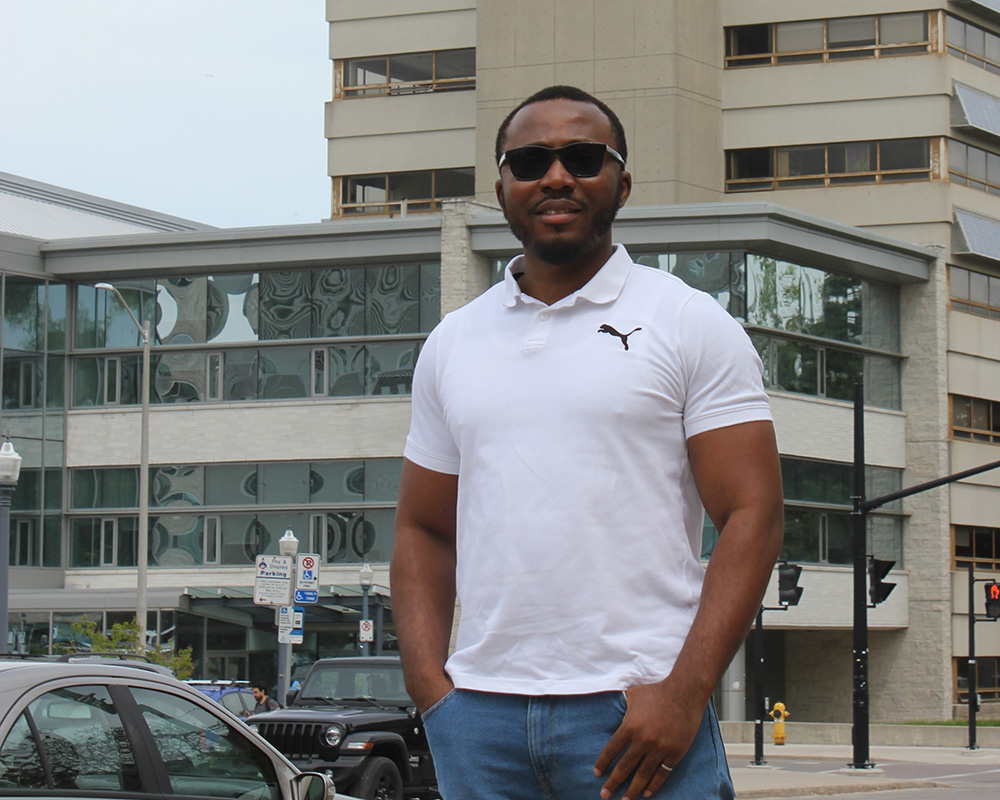Victor Udo-Okoro wants to make the nuclear industry safer.
"My research is investigating materials performance in the nuclear industry," he says, "such as iron- and nickel-based alloys. These high-strength, stronger materials are used in the industry for the safe and efficient operation of nuclear power plants. When these materials are exposed to high-temperature, high pressure, aqueous, and gaseous environments during nuclear power plant operation, they form a passive film to protect them from their exposed environment. The in-service performance of these materials has been generally excellent."
"However, the presence of impurities that may develop in localized regions in the rare occurrence of off-chemistry conditions such as sulfate, lead, caustic, and magnetite can compromise the integrity of these passive films.
Udo-Okoro investigates the effect of these impurities, such as sulfate in acidic solutions, on the passivity breakdown of these alloys using a high-temperature, high-pressure static autoclave to simulate off-chemistry scenarios in nuclear power plants. With this information, he can advise the industry on the degradation mechanism of these alloys, their efficient use, and the lifetime of the materials before refurbishment or replacement.
"The presence of certain impurities may break down these protective passive films," he says. "And when the film is impaired, impurities can penetrate and affect the material. Although very uncommon, this can lead to various forms of localized corrosion such as stress corrosion cracking, and pitting, for example."
"Safe operation of these plants, both the existing and the upcoming small modular reactors, necessitates a proactive approach to understanding all modes of material degradation even if they are generally not expected or have not occurred. It requires a mechanistic understanding of various degradation mechanisms of these alloys, so we, as part of the R&D under a University Network of Excellence in Nuclear Engineering (UNENE) Research Chair, continue to seek effective ways of making the plant operation safer, extend the useful life of these alloys, and to guide refurbishment activities when necessary."

Udo-Okoro arrived at Queen's in 2020 to continue his graduate studies amid the first wave of the COVID-19 pandemic. After earning two degrees—in Industrial Chemistry, and Chemical Engineering—in Nigeria, where he was born, he moved to Fredericton, NB, where he earned a master's degree at the University of New Brunswick in Chemical Engineering (Nuclear Option) and worked with Prof Derek Lister investigating corrosion processes in Nuclear Power Plants. With a continued interest in nuclear engineering, Udo-Okoro joined Prof. Suraj Persaud's research group at Queen's in the Mechanical and Materials Engineering department for his doctorate (PhD).
“COVID-19 slowed down the progress of my project. That machine, the static autoclave, where you took the pictures?" he asks. "We bought that autoclave in March of 2020 for my experiment, and because of COVID, the vendors could not come from the U.S. for installation until this past March 2022 because of border restrictions." Finally, we have the equipment operational, and everything is going according to schedule.
It is just one example of unexpected constraints that PhD students encounter. Four years of self-motivated research might appear lengthy, "This [example] is why a lot of people try to work around the clock to complete their PhD studies," he says. "My typical day includes research, teaching, writing, and creating PowerPoint presentation slides which takes a lot of time. Since joining the Persaud research group, I have participated in many conferences. One of my research papers won the best PhD submission at the 2022 Canadian Nuclear Society conference. I am super grateful to my supervisor for the opportunity to present my work and attend several conferences."
"You have to take care of your personal life as well. One thing about research is that we tend to get lost in our research. We tend to forget what is happening in the outside world, and we want to stay focused. I want to finish within the required number of years or even less, so I put a lot of effort into my work to get it done. Time management is one of the soft skills you learn in graduate school, among numerous other skills. So, I work when I'm supposed to work, and I take a break when I can, but most times I'm always working, even though my supervisor will always advise you to take a break."
"I just recently became a Canadian citizen," he says. "And I have a one-year free pass to all Canadian museums, so that is something I want to explore over the summer, to go out there and see different things that make Canada, Canada."
